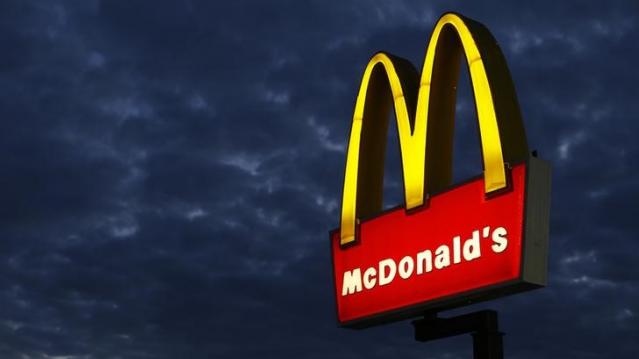McDonald’s Aims for a Classier Crowd with Lobster Rolls

As sales continue to fall, McDonald’s is desperately trying to reinvent itself, and its latest efforts seem to be aimed at a slightly classier crowd.
New England-area McDonald’s are going to start selling lobster rolls again after a 10-year hiatus, according to a report on Fox CT. No word yet on whether the old name McLobster will be revived.
The new lobster roll is reportedly made from 100 percent North Atlantic lobster, and includes mayonnaise, a bed of lettuce, and a small, toasted roll.
The meal has 290 calories and sells for $7.99.
McDonald’s introduced lobster rolls nationwide for the first time in 1993. Although the launch was a commercial disappointment, the rolls were still available seasonably in New England until 2005. Select McDonald’s restaurants in Canada also offer them for a limited time each year.
There were several reasons for the 1993 McLobster’s failure. Not only were customers wary of a “quality” seafood item served at a fast food chain, but the roll cost $5.99 (about $7.50 in 2015 dollars), a high price relative to the rest of menu.
The new lobster roll will also be expensive and doubts about the quality of its fast food continue to haunt the house that Ronald built. Given those barriers and the company’s track record, it seems unlikely that this particular crustacean-based sandwich is going to be driving a meaningful revival for McDonald’s any time soon.
Quote of the Day: A Big Hurdle for the Tax Cuts

“He goes in and campaigns on an issue, and the challenge is he then talks about executing drug dealers. Why do you think the press is going to cover the tax cuts if you’ve given them the much more exciting issue?”
-- Grover Norquist, president of tax-cutting advocacy group Americans for Tax Reform, on President Trump’s failure to sell the tax law.
The Obamacare Mandate That Could Produce $12 Billion in Fines in 2018

Republicans effectively eliminated the individual Obamacare mandate in the tax package signed late last year. Although the new regulation reducing the mandate penalty to zero doesn’t take effect until 2019, President Trump has cited the rule change as a victory over the health law so many conservatives oppose. “Essentially, we are getting rid of Obamacare. Some people would say, essentially, we have gotten rid of it," Trump told a crowd in Michigan two weeks ago.
However, many parts of the Affordable Care Act are still in effect and will continue to operate even after the individual mandate is eliminated in 2019.
In particular, the employer mandate, which requires companies with more than 50 employees to offer health benefits or face fine of roughly $2,000 per worker, will continue to play a significant role in the Obamacare system. The Congressional Budget Office estimates that the mandate will produce more than $12 billion in fines in 2018 alone.
Some conservative groups are pushing lawmakers to stop enforcing the employer mandate, but the IRS is still working to enforce the law. According to The New York Times Monday, the IRS is sending out notices to more than 30,000 businesses that have failed to comply.
Chart of the Day: It’s Still the Economy, Stupid

Security may be the top policy issue for Republican voters, but the economy is the top concern for Democrats, independents and voters overall, according to Morning Consult’s latest polling on the midterm elections. Health care is third on the list, followed by “seniors’ issues.” The results are based on surveys with more than 275,000 registered U.S. voters from February 1 to April 30.
Number of the Day: $13 Billion

An analysis by Bloomberg finds that the roughly 180 companies in the S&P 500 that have reported earnings for the first three months of the year saved almost $13 billion thanks to the corporate tax cut enacted late last year. Those companies’ effective tax rate dropped by more than 6 percentage points on average. About a third of the tax savings went to 44 financial firms.
How a Florida Doctor with Social Ties to Trump Delayed a $16B Billion VA Project

A West Palm Beach doctor who is friends with Ike Perlmutter, the chairman of Marvel Entertainment and an informal adviser to President Trump on veterans’ issues, has held up “the biggest health information technology project in history — the transformation of the VA’s digital records system,” Politico’s Arthur Allen reports. Dr. Bruce Moskowitz “objected to the $16 billion Department of Veterans Affairs project because he doesn’t like the Cerner Corp. software he uses at two Florida hospitals, according to four former and current senior VA officials. Cerner technology is a cornerstone of the VA project. … Moskowitz’s concerns effectively delayed the agreement for months, the sources said.” Read the full story.

